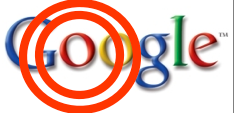 The European Commission has launched an investigation into Google after three vertical search engines submitted formal complaints that the firm had use its dominant position to crowd out and disappear results from these engines – as reports various outlets including Bloomberg and the BBC.
The European Commission has launched an investigation into Google after three vertical search engines submitted formal complaints that the firm had use its dominant position to crowd out and disappear results from these engines – as reports various outlets including Bloomberg and the BBC.
The EU is obliged to look into whether Google has purposely lowered the search rankings of price comparison sites Foundem (UK) and Ciao (owned by the Microsoft’s Bing), and French legal search engine ejustice.fr in its results.
The EU investigatation will also take in Google’s ad platform, which covers Google’s unpaid and sponsored search results and “an alleged preferential placement of Google’s own services.”
We’re going to take a look at what all this means.
The European Commission will look at whether Google “imposes exclusivity obligations on advertising partners, preventing them from placing certain types of competing ads on their websites, as well as on computer and software vendors, with the aim of shutting out competing search tools.”
Specifically, whether Google has:
• has abused a dominant market position in online search by lowering the ranking of unpaid search results of competing services;
• accords preferential placement to the results of its own vertical search services and in so doing shuts out competing services; and
• lowered the ‘Quality Score’ for sponsored links of competing vertical search services, the Quality Score being one of the factors that determines the price paid to Google by advertisers.
The backround to this is that Ciao, Foundem and Ejustice.fr filed an antitrust complaint against Google in back in February. This is separate from any other EU probe Google’s has had over its StreetView service – that’s about privacy.
Google’s defending statement is that it has marked ads properly and will be “working with the Commission to address any concerns.” Of course, it has to say that. In private, our sources say Google dealt with a lot of these issues some time ago – and indeed it is under an obligation to keep out spammy links from lame ‘shopping’ search engines.
The matter is particularly sensitive for European startup search providers since there is often a view among them that Google feels it can get away with doing some things in small European markets, away from the harsh gaze of SIlicon Valley’s media.
Foundem’s view is that Google is “stifling innovation” and “should not be allowed to discriminate in favor of its own services” and should label its own services in search results.
Indeed, there is even a European trade organisation called ICOMP (Initiative for a Competitive Online Marketplace). Their legal council, David Wood, welcomes the probe as a “thorough investigation is necessary to determine the workings of Google’s black box.”
Now, although the EU can impose a fine of up to 10 percent of revenue for monopoly abuses (the EU’s took $1.38 billion from Intel Corp. last year) the likelihood of this investigation a) coming down hard on Google or b) levying a fine is pretty unlikely and even if this happened, the fine would probably be restricted to its European markets. For instance, in September the Commission closed an investigation into Apple after it introduced cross-border iPhone warranty repair services within the EU. It shows that the Commission is, in practice, often prepared to play ball and horse trade.
But the fact its launched this investigation does flag that Google will have to step up to the plate and answer the charges in a formal and legal manner.